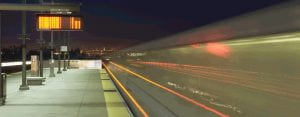I blogged for The Huffington Post for a few years on various aspects of how the humanities can benefit education in management and public administration at the University of San Francisco. Twice I featured examples of how one of my students interpreted an Ethical Will assignment as part of a required ethics class in all programs. I decided I would conclude 2017 by making this an annual tradition. To recall, an Ethical Will is an informal document that is often included with people’s estate planning papers. It is a letter to the future, in which you share the relationships, accomplishments, and values that made your life satisfying. This letter takes no special training to write, and does not have to follow any particular format; it is simply an opportunity to tell your beneficiaries what is important to you. I encourage students to think beyond the epistolary form and to exercise their unique creativity in generating a legacy.
To prepare them for this task, students are guided through a series of meditations, readings, podcasts, and videos, all aimed at stimulating their reflection on their lives and how they have come to identify and live their core values. Among the resources students consult is
David Foster Wallace’s now-famous commencement speech which he delivered at Kenyon College in 2005 This Is Water: Some Thoughts, Delivered on a Significant Occasion, about Living a Compassionate Life which covers subjects including “the difficulty of empathy, the importance of being well adjusted, and the essential lonesomeness of adult life.”
Wallace begins with a parable:
“There are these two young fish swimming along, and they happen to meet an older fish swimming the other way, who nods at them and says, ‘Morning, boys. How’s the water?’ And the two young fish swim on for a bit, and then eventually one of them looks over at the other and goes, ‘What the hell is water?”’ Wallace elaborated on his parable for the graduating students: “The point of the fish story is merely that the most obvious, important realities are often the ones that are hardest to see and talk about… The fact is that in the day to day trenches of adult existence, banal platitudes can have a life or death importance.”
And, nearing the end of his speech he instructs students on the purpose of their education and the value of reflecting in the way we ask them to do with the Ethical Will assignment:
“The capital-T Truth is about life BEFORE death. It is about the real value of a real education, which has almost nothing to do with knowledge, and everything to do with simple awareness; awareness of what is so real and essential, so hidden in plain sight all around us, all the time, that we have to keep reminding ourselves over and over: This is water. This is water.”
In response to Wallace’s challenge to embrace simple awareness, prior examples have drawn lessons from basketball and golf. Today I offer the following example for how to live a good life as derived from a daily commute on public transportation. Foster says, “This is Water.” Angel Xu says, “This is BART.”
In constructing her analogy, Angel followed the BART (Bay Area Rapid Transit System) map and developed life lessons for each line. Believing that “life is beautiful,” and that “hardness comes in just to make you feel the joys after going through them,” Angel concluded that “Life is like taking the BART,” for the following reasons:
Red Line
- Don’t be afraid to ask for guidance when you get lost. Even the most experienced rider can get confused.
- It’s never too late to do anything. If you miss a connection there will be another train or another route to take. And you might take an interesting diversion you would have otherwise missed.
Blue Line
- The mistake is the best teacher. If you make a mistake on public transportation you pay with time, energy, and anxiety, and unintended consequences. But you also never forget to avoid that mistake again.
Green Line
- Be nice, keep smiling. Some events and experiences on public transportation are beyond your control and can be disconcerting. Yet everyone is feeling what you are feeling. We all benefit when we keep up our spirits.
- Enjoy the scenery. The journey can be as important as the destination. Take time away from busyness and tasks and look around at the people and places that make up your world.
- Be prepared. For your journey to be successful and rewarding you need to plan ahead but also be prepared to be surprised and have a plan for how to handle what you don’t expect. Because it will come.
Yellow Line
- People get on, get off. We have small windows of time to make connections and to appreciate the lives of others. Consider where you and others get on and get off and take advantage of the time you have to explore worlds and lives.
- Think in other’s shoes. People travel and enter into our lives for all kinds of reasons and bring with them an assortment of moods. We don’t know the stories they bring, the troubles they bear, or the joys they feel unless we take the time to ask them and consider their point of view.
Angel concludes her analogy by reminding us that:
“different lines arrive at the same destination.”
We are all headed to the same fate—a mortal recognition the Ethical Will assignment encourages students to confront—but we can decide how we ride our trains to glory. So, the next time you feel frustrated with public transportation, consider that you may be sitting next to a better Angel of your nature.
